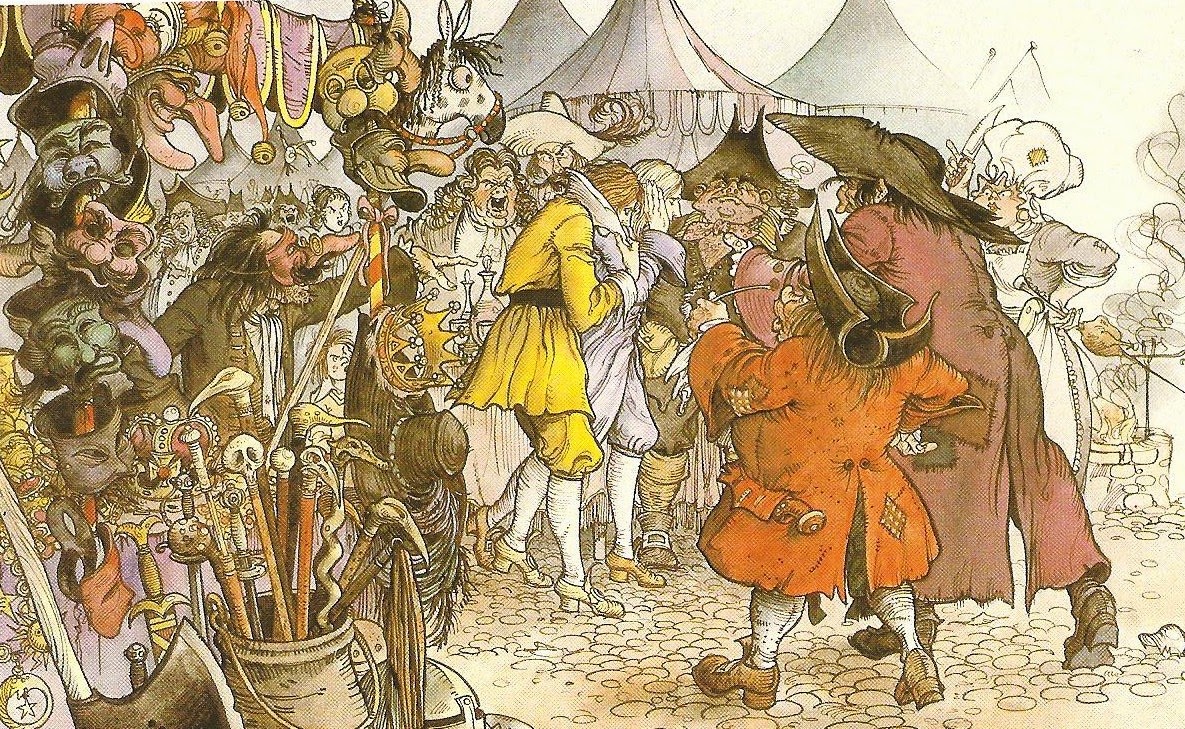I have been reading John Bunyan's classic, The Pilgrim's Progress. One of the most famous chapters and scenes is when Christian, the protagonist, and his pilgrim friend Faithful enter Vanity Faire. Vanity Faire is a market that sells all the vanities of this world. From palaces to petticoats, the faire is stock with everything one of the world could possibly want. It is said that the lord and king of this City of Vanity is Beelzebub. That the Prince of Peace once was taken through the city, but did not yield to the vanities.
We live in world that is vanity faire. From malls to mountains, there are things that beckon to us and seek to possess us. Facebook itself has become a vanity faire, where people display their every event; reveling in showing others that they are having a good time. King Solomon once said, "vanity, vanity, all is vanity." (Ecclesiastes 1:2). He is right, with the except of following Jesus Christ. This world wants us to be slaves and to wandering the endless market of Vanity and never reach the victory God has for us. Like Christian and his friends, we must press on and prepare to "resist sin unto shedding of blood (death)" (Hebrews 12:4). As Christians we have become comfortable with living a double life of serving the Lord and serving our lusts.
Our Savior resisted sin unto death. He bled on Calvary so that you and me could be set free from the chains and misery of chasing vanity. We must put aside the things of these world and strive towards the prize in the next. All the trinkets, toys, and tapestries can never satisfy. You cannot find The Living Water at Vanity Faire. He can only be found when you let go of this world and seek to serve him to the very end. Our aim is the Celestial City in Bunyan's book. To reach it, we must like Christian brave many dangers to our flesh and soul. We must resist the devil and wanton desires of our flesh. Jesus must become more important than our image, passions, and possessions. We must be ready to follow our Lord in rags, and not just be content when he is wearing "Golden slippers".
To obtain the victory, we must let go of our vanity. "He (Christ) must increase, and I (we) must decrease." (John 3:30). Our will should become symbiotic with His Will. His desires should become our desires. We should want to plunge into The Valley of the Shadow of Death, if we see The Lamb of God go down that path. We should want to ignore the Market of Vanity, if it means reaching the ultimate Victory!
The time has come for us to stop serving two masters. We have to make a conscious choice. Will we be lost in Vanity or will we risk all to reach the Celestial City? Will we be obsessed with appearances, pleasures, and possessions or will we "count all things as lost, except knowing Christ?" (Philippians 3:8). This is not for the faint of heart. To follow Jesus is not to be a fan who cheers on Sundays, but refuses to carry the cross the rest of the week. The time has come to put pretense aside and start pursuing our Prince of Peace without compromise! It is time to walk in victory and vanquish our vanities and vices.

Comments
Post a Comment